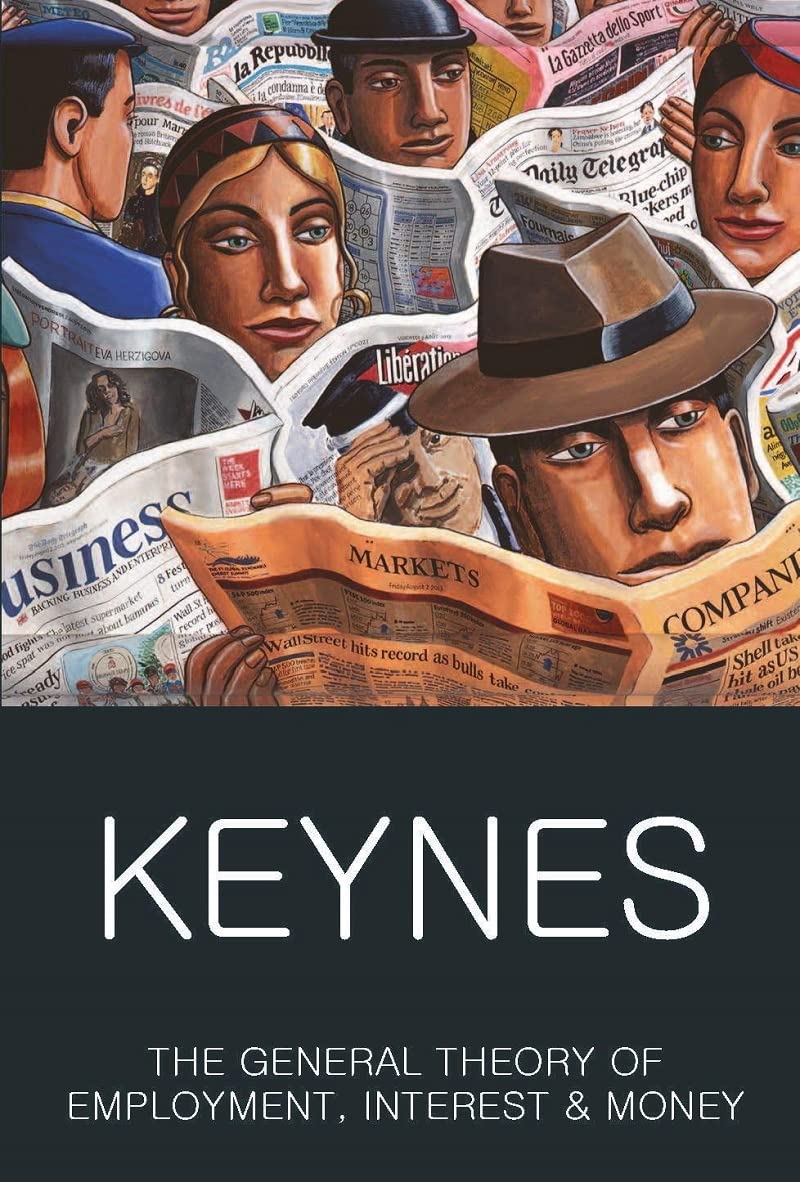Sách Ngoại Văn - The General Theory of Employment, Interest and Money: With the Economic Consequences of the Peace (Classics of World Literature) Paperback by John Maynard Keynes (Author)
Mô tả ngắn
General Theory of Employment, Interest and Money: With the Economic Consequences of the Peace by John Maynard KeynesJohn Maynard Keynes (1883-1946) is perhaps the foremost economic thinker of the twe...- Giao hàng toàn quốc
- Được kiểm tra hàng
- Thanh toán khi nhận hàng
- Chất lượng, Uy tín
- 7 ngày đổi trả dễ dàng
- Hỗ trợ xuất hóa đơn đỏ
Giới thiệu Sách Ngoại Văn - The General Theory of Employment, Interest and Money: With the Economic Consequences of the Peace (Classics of World Literature) Paperback by John Maynard Keynes (Author)
General Theory of Employment, Interest and Money: With the Economic Consequences of the Peace by John Maynard Keynes
John Maynard Keynes (1883-1946) is perhaps the foremost economic thinker of the twentieth century. On economic theory, he ranks with Adam Smith and Karl Marx; and his impact on how economics was practiced, from the Great Depression to the 1970s, was unmatched.
The General Theory of Employment, Interest and Money was first published in 1936. But its ideas had been forming for decades ? as a student at Cambridge, Keynes had written to a friend of his love for 'Free Trade and free thought'. Keynes's limpid style, concise prose, and vivid descriptions have helped to keep his ideas alive - as have the novelty and clarity, at times even the ambiguity, of his macroeconomic vision. He was troubled, above all, by high unemployment rates and large disparities in wealth and income. Only by curbing both, he thought, could individualism, 'the most powerful instrument to better the future', be safeguarded. The twenty-first century may yet prove him right.
In The Economic Consequences of the Peace (1919), Keynes elegantly and acutely exposes the folly of imposing austerity on a defeated and struggling nation.
Giá sản phẩm trên Tiki đã bao gồm thuế theo luật hiện hành. Bên cạnh đó, tuỳ vào loại sản phẩm, hình thức và địa chỉ giao hàng mà có thể phát sinh thêm chi phí khác như phí vận chuyển, phụ phí hàng cồng kềnh, thuế nhập khẩu (đối với đơn hàng giao từ nước ngoài có giá trị trên 1 triệu đồng).....
Hình ảnh sản phẩm

Giá KRN
Thông tin chi tiết
| Công ty phát hành | Công ty TNHH Thương mại và Dịch vụ Văn hóa Hà Nội |
|---|---|
| Loại bìa | Paperback |
| SKU | 8582417318407 |
Từ khóa
aristotle english books artbook dk freakonomics dk book socrates plato grain brain thích nhất hạnh nhà sách tiki jared diamond freud albert einstein michio kaku stephen hawking ai lấy miếng pho mát của tôi who steve jobs john c maxwell mba wabi sabi think and grow rich malcom gladwell henry ford the magic putin arthur conan doyle bill bryson astrology





